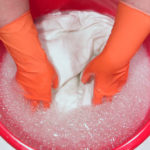Most families nowadays use LCD TVs with large, clear screens, providing a much better TV viewing experience compared to older TV models. However, this type of TV is prone to attracting dust, fingerprints, and grease stains. If not properly cleaned, it can affect our viewing experience over time.
Many people make some common mistakes when cleaning the screen, which can cause irreversible damage. LCD TVs have a special coating on the surface, and improper cleaning can damage this coating, reducing reflection, static electricity, and color of the image.
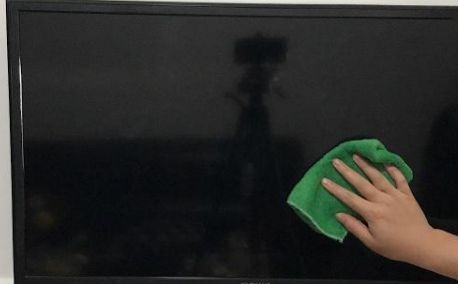
What are the common mistakes when cleaning TV screens?
Firstly, never wipe the screen with a soft cloth or regular paper towel. These materials are too rough for delicate LCD crystals, and wiping the screen with them can cause scratches.
Secondly, do not clean the TV directly with water, as excessive water can seep into the TV and cause circuit shorts.
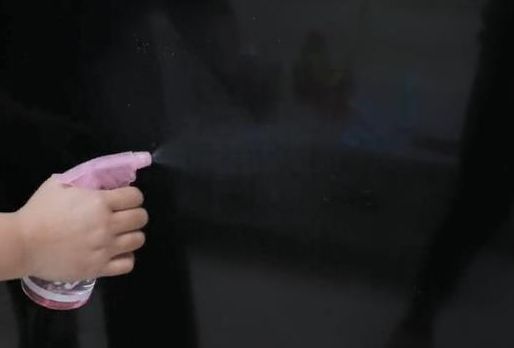
Thirdly, never use chemical solvents such as alcohol, gasoline, engine oil, nail polish remover, etc. If the TV screen is cleaned with chemical solutions like alcohol, it will dissolve the special coating on the screen, causing the screen to lose its optical transmission ability or create color distortion due to refraction or a decrease in anti-interference and color rendering. Also, do not use alkaline solutions and chemical solvents, as they can also dissolve the special coating of the LCD.
So how should you clean your TV screen?
– First, when choosing a soft cloth, we should choose a small-fiber fabric or a specialized TV cleaning cloth, as small-fiber fabrics have two advantages: First, they are extremely soft, so when wiping the LCD, they will not scratch it. The second advantage is their strong absorption capacity, which can effectively remove dirt.
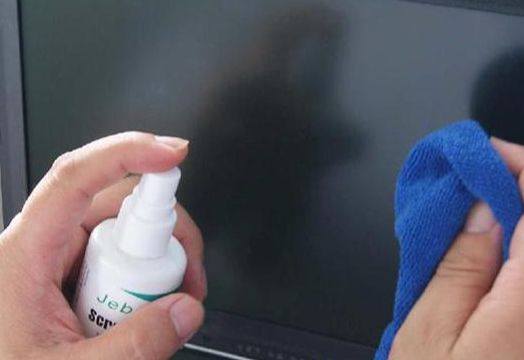
– Secondly, when choosing a cleaning agent, we should choose a specialized cleaning agent for LCD TVs. These cleaning agents have the following advantages: First, they do not corrode the screen coating, and they have strong volatilization and cleaning abilities. They also do not generate static electricity during the cleaning process, so they do not attract more dust.
How to clean the TV screen
1. Cleaning with white vinegar
Pour an appropriate amount of white vinegar into a spray bottle, add double the amount of water, and shake well. Spray the prepared solution onto a clean cloth, then wipe the screen in one direction. After wiping, you will see that the stains have disappeared, and it is not prone to dust accumulation on the TV screen with this method.
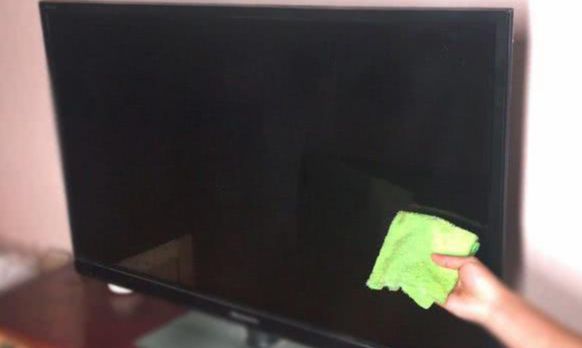
2. Repairing scratches on the screen with Vaseline
When the TV screen is scratched, use a cotton swab dipped in Vaseline and apply it to the scratched surface. Wipe the scratches from top to bottom. After wiping, you will find that the scratches on the TV are no longer very visible. Vaseline is very greasy, and using it to clean the TV can act as a maintenance for LCD TVs, while also preventing static electricity on the TV and reducing dust attraction.
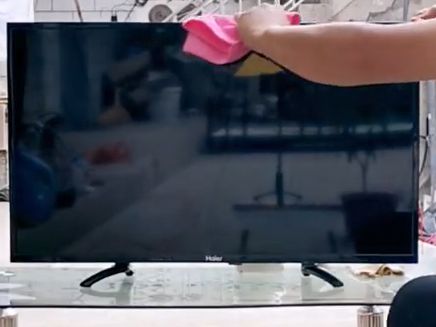
Some notes when cleaning the TV screen
– Always turn off the TV before cleaning.
– Do not directly spray water onto the screen to clean a flat-screen TV.
– Do not scrub too hard, as it can cause scratches on the screen.
According to An Nhiên – Vietnamnet

























